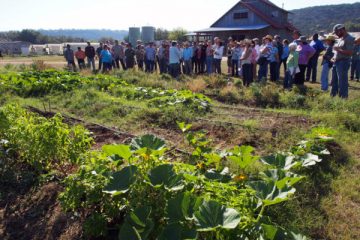By Rebecca Solnit
March 15, 2023 at 6:00 a.m. EDT
Rebecca Solnit, a writer and historian, is the author of more than 20 books and co-editor of the anthology “Not Too Late: Changing the Climate Story From Despair to Possibility,” [__publishing in April_](https://www.nottoolateclimate.com/)_._
In this text, Rebecca Solnit explores a different perspective on the climate crisis and how we should respond to it. She challenges the assumption that addressing climate change means sacrificing abundance for austerity and giving up our conveniences. Instead, Solnit suggests that we should give up things that make us miserable and focus on relinquishing harmful aspects such as deadly emissions and feelings of doom and complicity. She proposes that our current way of living is already austere in many ways, as we are experiencing a decline in confidence, security, social connectedness, and overall well-being. Fossil fuel burning contributes to this impoverishment by corroding politics, causing health issues, and increasing despair and anxiety through destabilized temperature and weather patterns.
Solnit acknowledges the impact of the climate crisis on the younger generation, who rightfully experience anger and grief. However, she emphasizes that a broader sense of helplessness and guilt affects many of us, leading to moral injury. Some people try to avoid confronting this reality by adopting willful obliviousness or numbing behaviors, which result in inaction. Solnit argues that this crisis requires specific action, including a swift transition to renewable energy, improved designs for the built environment, and better care for the natural world.
Despite the challenges, Solnit finds hope in the growing awareness that humans are interconnected with nature and dependent on it. She sees individuals and communities reevaluating their work and lifestyles, considering the sustainability of the environment. Farmers, Indigenous communities, ocean advocates, and others champion the well-being of the biosphere and work towards a better future. Solnit believes that this knowledge and action need to be cultivated and expanded until they become the foundation of how we understand and operate in the world.
To achieve such a transformation, Solnit suggests a change in perspective. Rather than defining wealth by money or material possessions, she proposes redefining it as joy, beauty, friendship, community, and a close connection to nature and sustainable food production. Wealth should encompass security in our environments, societies, and confidence in a viable future. Solnit urges us to reclaim our time and prioritize pursuits that bring true richness to our lives. By focusing less on getting and spending, we can engage in creative endeavors, adventure, learning, building stronger societies, and caring for loved ones, including ourselves. Through her research on how people respond to disasters, Solnit discovered that even amidst death and ruin, joy can emerge when people find meaning, deep connections, and generosity.
In response to the climate crisis, Solnit calls for us to tap into the resilience and spirit that people demonstrate in times of disaster. By embracing a sense of meaning, connection, generosity, and joy, we can meet the immense challenges and make lives better. She believes that this moral beauty already resides within us and is the abundance we need to navigate the climate crisis successfully.


